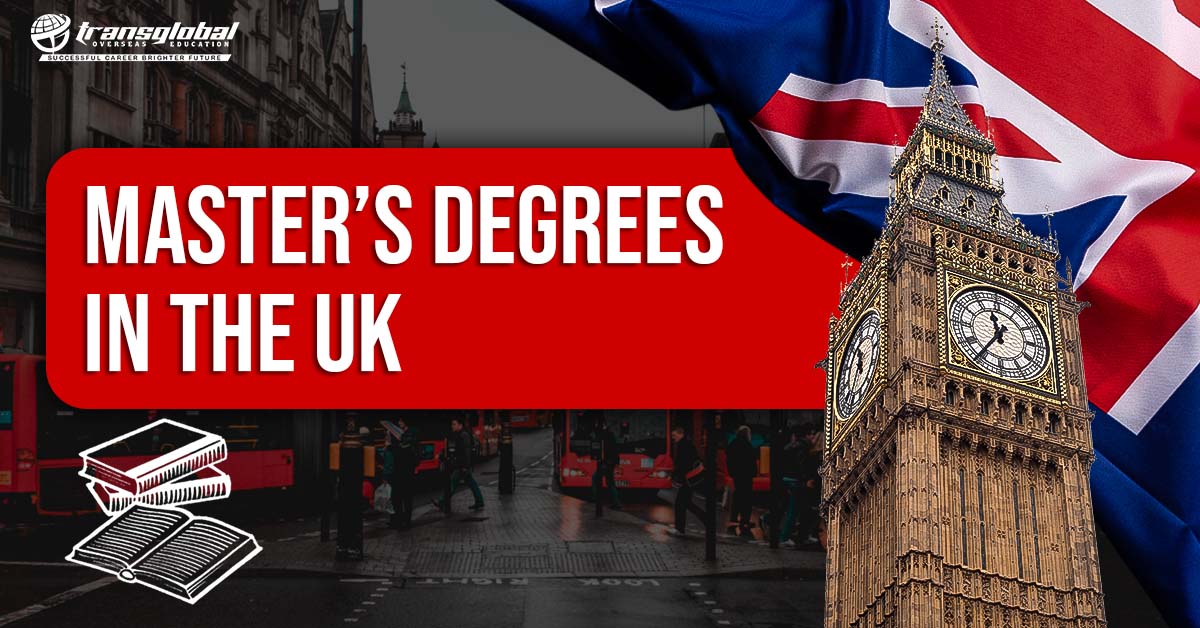The United Kingdom is known for its great universities and opportunities. Getting a Master's degree from a top UK university can really boost your career. You'll learn valuable skills and have lots of chances for success. This guide explains why studying for a Master's in the UK is a good idea, talks about the best universities there, different programs you can choose from, how to get funding, and what cool jobs you can get afterward.
Why Pursue a Master's in the UK?
- Globally Recognized Credentials: A Master's degree from a UK university is respected worldwide, giving your resume a significant edge.
- Focus on Practical Application: Many programs integrate real-world projects, industry collaborations, and case studies, ensuring you graduate career-ready.
- Shorter Program Options: Many Master's programs can be completed in one year, allowing for faster career advancement.
- Culturally Diverse Environment: Immerse yourself in a vibrant and multicultural society, expanding your network and perspective.
- Potential Post-Study Work Opportunities: A UK Master's degree can enhance your eligibility for work permits (subject to specific visa requirements), allowing you to gain valuable experience in the UK job market.
Top Universities Offering Master's Programs in the UK:
The UK boasts numerous esteemed universities with exceptional Master's programs. Here are some of the top choices:
- University of Cambridge: Renowned for its focus on research, innovation, and entrepreneurship across various fields.
- University of Oxford: Offers a world-class Master's program with a strong emphasis on leadership and global business.
- Imperial College London: Specializes in Master's programs in science, engineering, medicine, and business with a focus on research and innovation.
- London School of Economics and Political Science (LSE): A prestigious institution known for its rigorous Master's programs in economics, finance, political science, and social sciences.
- University of Manchester: Offers a wide range of Master's programs, from engineering and technology to humanities and social sciences.
Types of Master's Programs in the UK:
- Taught Master's: Involves coursework, exams, and potentially a final project to earn your degree.
- Research Master's: Focuses on conducting original research and writing a thesis under the guidance of a supervisor.
- Master of Business Administration (MBA): Designed for aspiring business leaders, offering a broad understanding of business principles and leadership skills.
Financing Your Master's in the UK:
While tuition fees can be high, there are options to manage the cost of your UK Master's:
- Scholarships: Explore scholarships offered by universities, the UK government (consider programs relevant to your field), and external organizations that support international students. Research these options early as application deadlines may apply.
- Student Loans: Depending on your eligibility, student loans from your home country or banks in the UK can help finance your studies.
- Part-time Work: International students with valid work permits can take on part-time jobs to supplement their income (subject to specific visa requirements and work hour limitations).
Career Scope after a Master's in the UK:
Getting a Master's degree in the UK gives you the knowledge and skills you need for exciting jobs in different industries.
- Finance and Banking: Thrive in London's financial district or other major financial hubs with a Master's in finance, accounting, or banking.
- Management Consulting: Leverage your problem-solving and analytical skills in top consulting firms with a business-focused Master's.
- Engineering and Technology: Contribute to groundbreaking innovations with a Master's in engineering, computer science, or related fields.
- Research and Academia: Pursue a research-focused Master's to embark on a rewarding career in academia or research institutions.
- Entrepreneurship: The UK fosters a strong entrepreneurial environment. Your Master's can give you the edge to launch your own venture.
Taking the First Step:
Ready to embark on your Master's journey in the UK? Here's how to get started:
- Research Universities and Programs: Explore university websites and resources to find programs aligned with your career goals and interests.
- Meet Entry Requirements: Ensure you meet the academic qualifications, English language proficiency (GMAT/GRE scores may be required for some programs), and other program-specific requirements.
- Prepare Your Application: Gather transcripts, essays, letters of recommendation, and any additional materials required by the university.
- Apply for a Student Visa: Once accepted, apply for a student visa specific to your program duration
FAQ’s
I want to finish my Master's program quickly. Are there shorter options available in the UK?
Yes! Unlike some countries, many Master's programs in the UK can be completed in just one year. This allows for faster career advancement and reduces overall costs.
How can I finance my Master's degree in the UK?
While tuition fees can be a significant factor, there are options! Explore scholarships from universities, the UK government (relevant to your field), and external organizations. Student loans and part-time work with a valid visa can also help manage costs.
What are the differences between Taught Master's and Research Master's programs?
Taught Master's programs focus on coursework, exams, and potentially a final project. Research Master's programs involve original research and writing a thesis under a supervisor. Choose the option that aligns with your learning style and career goals.
Is an MBA a good choice for a Master's degree in the UK?
Absolutely! The UK boasts top-ranked business schools offering prestigious MBAs. This option is ideal if you aim for a leadership role in the business world.






Comments